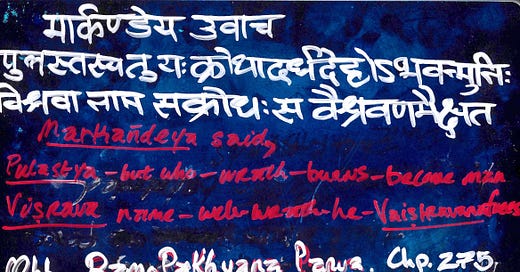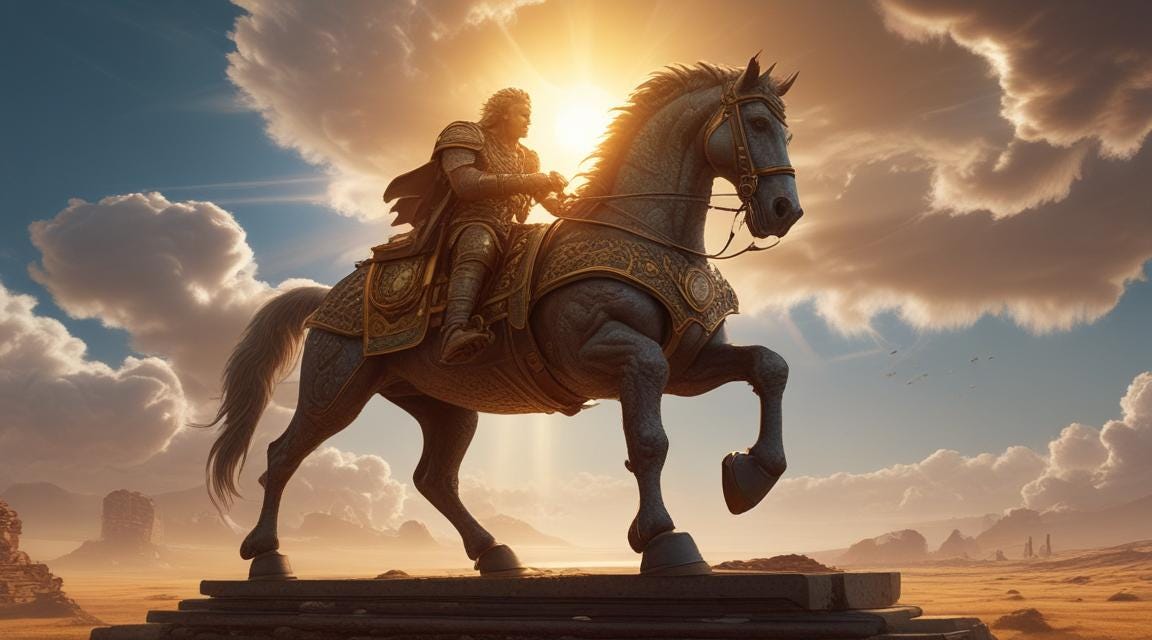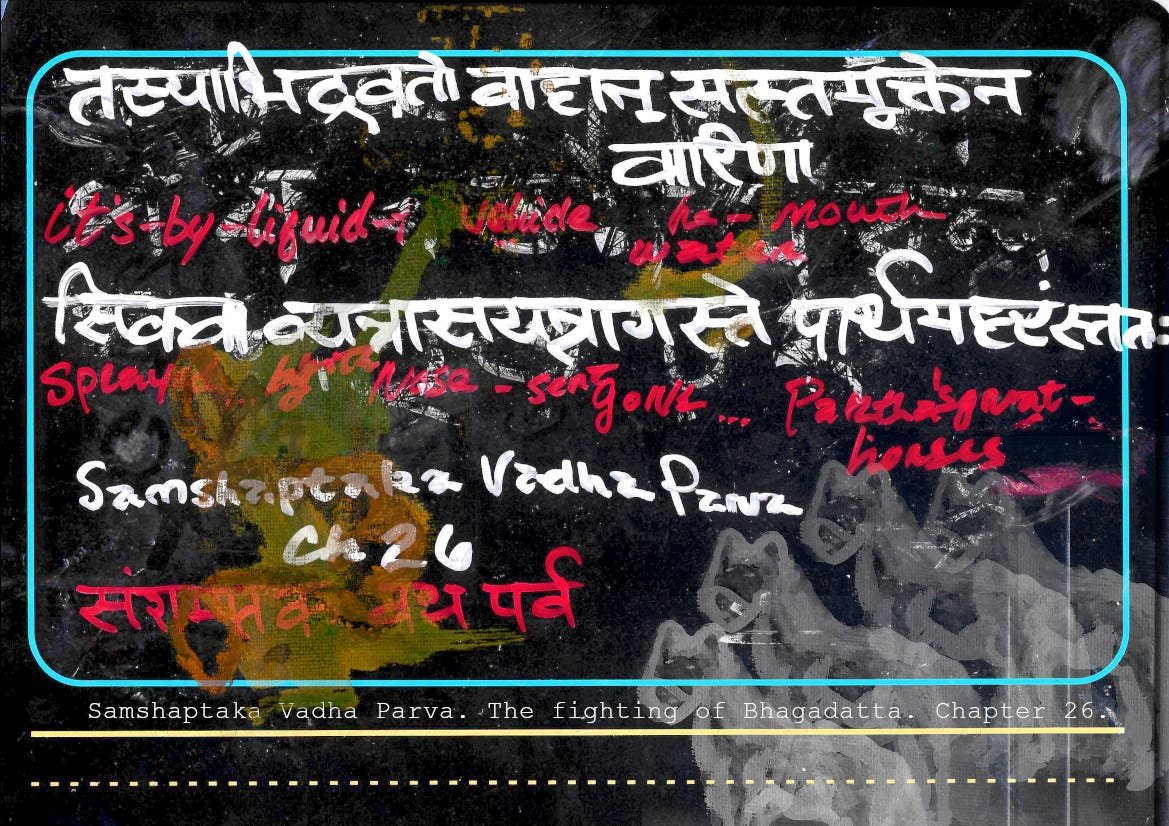Introduction
The Pandavas are distressed following their trouble with Duryodhana and Jayadratha. The Pandavas consult with the sage Markandeya out of concern that they may be cursed by the Gods or ancestors. When Yudhishthira laments their hardships, Markandeya responds by narrating the Ramayana.
The As It Rhymes translation of the Mahabharata version of the Ramayana as told by Markandeya will publish @ https://crackpot.substack.com/t/rama
Who is Markandeya?
As the Pandavas travelled, a number of sages came and went with them.[1] Markandeya is a sage who tells Yudhishthira and the Pandavas the story of the Ramayana.
The original author of the Ramayana is the enigmatic Valmiki, a bandit turned story seller.
A chorus of Sage voices
The epic is told in nested dolls of narrative context.
The outermost sage is Vyasa, who transcribes the re-telling. But Vyasa is a generic honorific meaning, sage of sages - may be understood to be an archetype as much as a specific person.
Within the text, Vaishampayana re-tells the tale to the curious Janamejaya, who wants to hear the story of his great-grandfathers the Pandavas. Janamejaya is the last descendant of the Kuru dynasty - born to Parikshit.[2]
Within Vaishampayana’s re-telling of the epic, there are narrators - such as Sanjaya who re-tells the war - that tell their part.
verse 1. Markandeya begins the tale of Rama by referencing the wrath of the sages Pulastya and Vishrava (Pulastya’s son) and Vaishravana (Ravana).
Notes
[1]
Among these hangers-on, one named Jat turned out to be a cannibal that hunted by posing as a brahman.
[2]
Parikshit was born to Uttara and Abhimanyu, Arjuna and Subhadra’s son. Uttara was Virata’s daughter. Virata offered Uttara to Arjuna after Arjuna saved Virata’s prized herd of cattle by defeating the Kauravas in battle with Virata’s son Uttar serving as Arjuna’s chariot. Arjuna felt Uttara was too young for him and introduced her instead to his son Abhimanyu.[1] The two clicked and soon wed. Uttara was pregnant with Parikshit during the 18-day war.
In one of Ashvatthama’s last mad acts with divine weapons, Parikshit was almost killed in Uttara’s womb. Ashvatthama released a divine weapon with effects similar to sonic or radioactive damage that stilled the unborn infant for a few moments. Parikshit means the diminution of lineage.
Abhimanyu war context -
Abhimanyu roamed in all directions, and nothing could be seen because of the dust that arose. Since they were enveloped in dust, we could not see the soldiers then. We say him emerge from the dust in the next instant, like the midday sun.
— Bibek Debroy. Mhb. Chapter 1017
Bhagadatta’s elephant -








